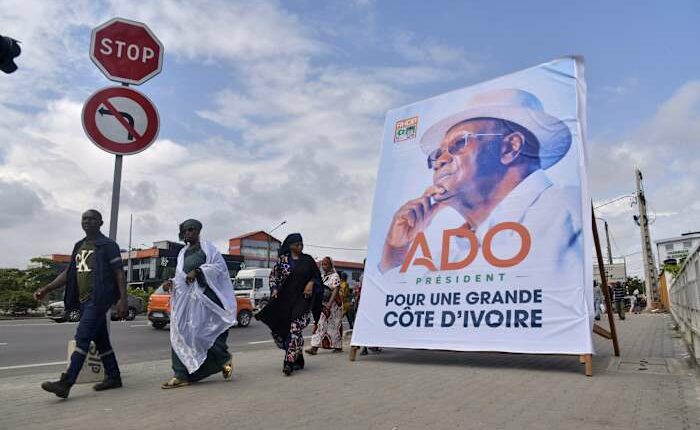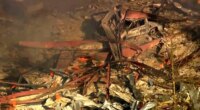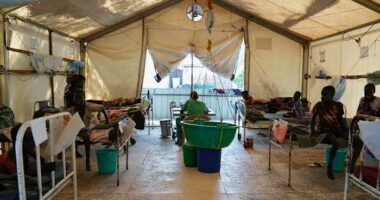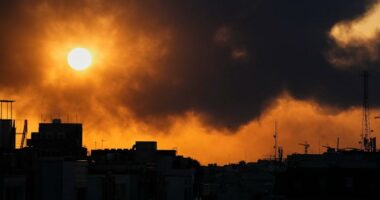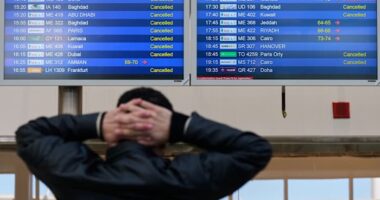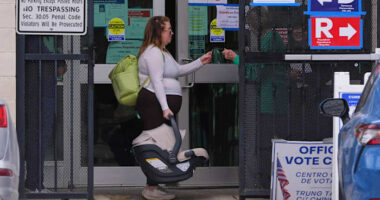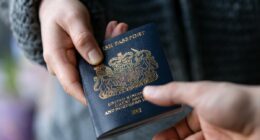Share this @internewscast.com
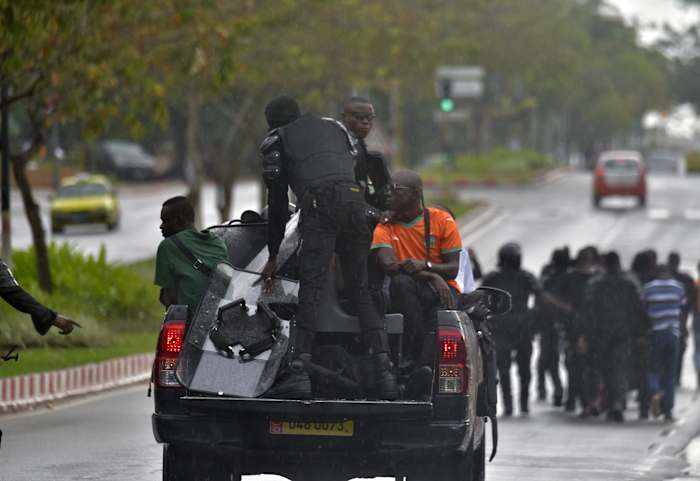
ABIDJAN – On Saturday, authorities in Ivory Coast detained at least 237 demonstrators involved in a protest against what has been described by activists as a drift toward authoritarianism. This information was shared by the Minister of the Interior and Security during a broadcast on national television.
Protesters reported the use of tear gas and makeshift roadblocks near the planned start of the march.
Ivory Coast, which has a population of 32 million and is the leading economy in French-speaking West Africa, is set to conduct its presidential election in two weeks. Earlier in the year, four key opposition leaders, including former President Laurent Gbagbo and ex-Credit Suisse CEO Tidjane Thiam, were excluded from the electoral race by the electoral commission.
President Alassane Ouattara, who has governed since 2010, declared his candidacy for a fourth term earlier this year. This has been a source of contention following a 2016 constitutional amendment that lifted the restriction on presidential terms.
The day prior to the scheduled protest, Abidjan’s prefect announced that any marches in the capital on Saturday were deemed illegal in order to preserve order during the electoral timeframe.
“These individuals will face consequences for their actions,” stated Gen. Vagondo Diomandė, the Minister of the Interior and Security, underlining the unauthorized nature of the protest.
Elections in Ivory Coast have traditionally been associated with high tension and unrest. The announcement of Ouattara’s third-term candidacy previously resulted in violent incidents, with several individuals losing their lives.
Ouattara is the latest among a growing number of leaders in West Africa who remain in power by changing constitutional term limits. He justified his decision to run again by saying that the Ivory Coast is facing unprecedented security, economic and monetary challenges that require experience to manage them effectively.
Over the past decade, groups linked to al-Qaida and the Islamic State group have been spreading from the Sahel region into wealthier West African coastal states, such as Ivory Coast, Togo and Benin.
Copyright 2025 The Associated Press. All rights reserved. This material may not be published, broadcast, rewritten or redistributed without permission.
